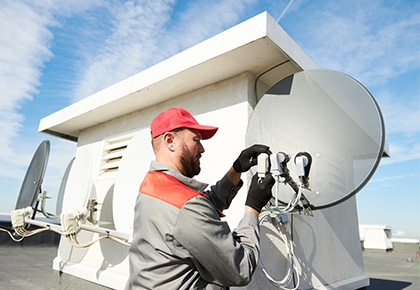Monday June 23, 2025
What are unenforceable HOA rules?
 Unenforceable HOA rules in Nevada are rules that violate state or federal laws, contradict the association's governing documents, or exceed the HOA's authority. While HOAs are empowered to set and enforce community rules, those rules must align with legal standards and the association's bylaws and covenants.
Unenforceable HOA rules in Nevada are rules that violate state or federal laws, contradict the association's governing documents, or exceed the HOA's authority. While HOAs are empowered to set and enforce community rules, those rules must align with legal standards and the association's bylaws and covenants.In Nevada, unenforceable HOA rules typically fall into one or more of the following categories:
- They conflict with federal or state laws.
- They infringe on protected homeowner rights.
- They are inconsistent with the HOA's recorded governing documents.
- They were not properly adopted.
This article is not intended to and does not constitute legal advice or create an attorney-client relationship. Board members should consult their association’s attorney to discuss the legal implications of their decisions or actions prior to proceeding.
Examples of unenforceable HOA rules in Nevada
Unenforceable HOA rules in Nevada generally involve policies that conflict with federal or state law, exceed the board’s authority, or bypass required steps. While most rules are intended to protect and maintain community standards, some may fall short of legal requirements. Here are a few examples boards should be mindful of:-
Rules that violate anti-discrimination laws
Rules that treat homeowners differently based on protected classes such as race, religion, national origin, sex, familial status, or disability may be unenforceable.
-
Restrictions on satellite dishes
Under the Over-the-Air Reception Devices (OTARD) rule established by the FCC, homeowners typically have the right to install satellite dishes and antennas on property they exclusively control, such as balconies or backyards. Associations can set reasonable guidelines for safety and appearance, but blanket bans or overly restrictive policies may not hold up.
-
Bans on political signs
Nevada law (NRS 116.325) typically gives homeowners the right to display political signs during election periods, within certain limits. Signs must not exceed 24 inches by 36 inches and can typically be posted from 30 days before early voting through 7 days after the election. An HOA rule that bans all political signs outright may be unenforceable.
-
Prohibiting American flags
Under the federal Freedom to Display the American Flag Act, homeowners generally have the right to fly the U.S. flag on their property. While associations can adopt reasonable guidelines regarding placement, timing, or installation methods, broad prohibitions may not be enforceable.
-
Inconsistently enforced rules
A rule that’s enforced for some homeowners but not others can be difficult to uphold. Selective enforcement may weaken a rule’s credibility and lead to confusion within the community.
-
Rules that contradict governing documents
HOAs must follow their CC&Rs, bylaws, and other governing documents. For example, if the bylaws require a member vote to approve new rules, but the board imposes rules without holding a vote, those rules may be unenforceable.
-
Excessive or arbitrary fines
Fines must be reasonable, clearly documented, and based on valid violations. In Nevada, fines for violations not impacting the health, safety, or welfare of other residents are typically limited to $100 per violation or $1,000 per hearing, not including late fees. Board members should keep in mind that fines are not intended as punishment, but as a means to encourage compliance. Transparent fine policies, shared openly with residents, may result in fewer disputes and stronger community trust.
-
Rules adopted without proper notice
The NRS requires that rule changes be adopted at open meetings with proper notice to homeowners. Rules passed without notice or outside of an open meeting may be unenforceable. Holding open meetings and communicating changes clearly shows a board’s commitment to transparency and can help build confidence in leadership decisions.
How to prevent unenforceable HOA rules
Preventing unenforceable HOA rules in Nevada comes down to thoughtful rulemaking, consistent enforcement, and a clear understanding of your board’s authority. These best practices can help you stay on track:- Follow the law: Regularly review NRS Chapter 116 and relevant federal laws, such as the Fair Housing Act and the OTARD rule.
- Align with governing documents: Confirm that new rules support and reflect your association’s CC&Rs, bylaws, and articles of incorporation.
- Use open meetings and proper notice: Adopt or amend rules during properly noticed open meetings and keep homeowners informed at every step.
- Document procedures: Keep thorough records of rule adoptions, including meeting minutes, notices, and any homeowner feedback.
- Apply rules consistently: Fair and consistent enforcement across all residents helps protect the validity of your rules over time.
The role of governing documents
Your HOA's governing documents are the legal backbone for rulemaking and enforcement. Unenforceable HOA rules in Nevada often arise when these documents are ignored or misinterpreted.Key documents include:
- CC&Rs: Outlines property use restrictions, maintenance responsibilities, and the association’s authority.
- Bylaws: Define how your board operates, including election procedures, meetings, and voting requirements.
- Rules and regulations: Provide day-to-day operational guidance and must always align with the CC&Rs and bylaws.
How FirstService Residential supports Nevada HOAs
At FirstService Residential, we support Nevada HOA boards by helping them navigate the day-to-day responsibilities that come with governing a community. That includes reviewing existing policies, streamlining operations, and making enforcement clear, consistent, and aligned with your governing documents.Our teams bring the structure, service, and follow-through to help you lead with confidence so your board can focus on what matters most to your residents. Contact us to learn more about how we simplify governance for associations statewide.